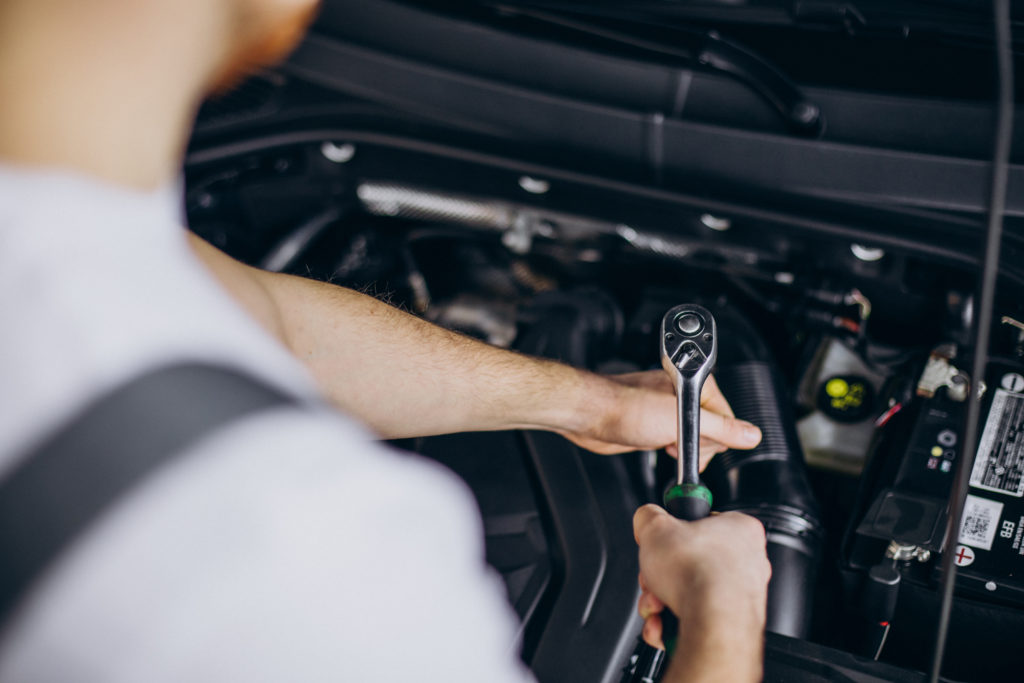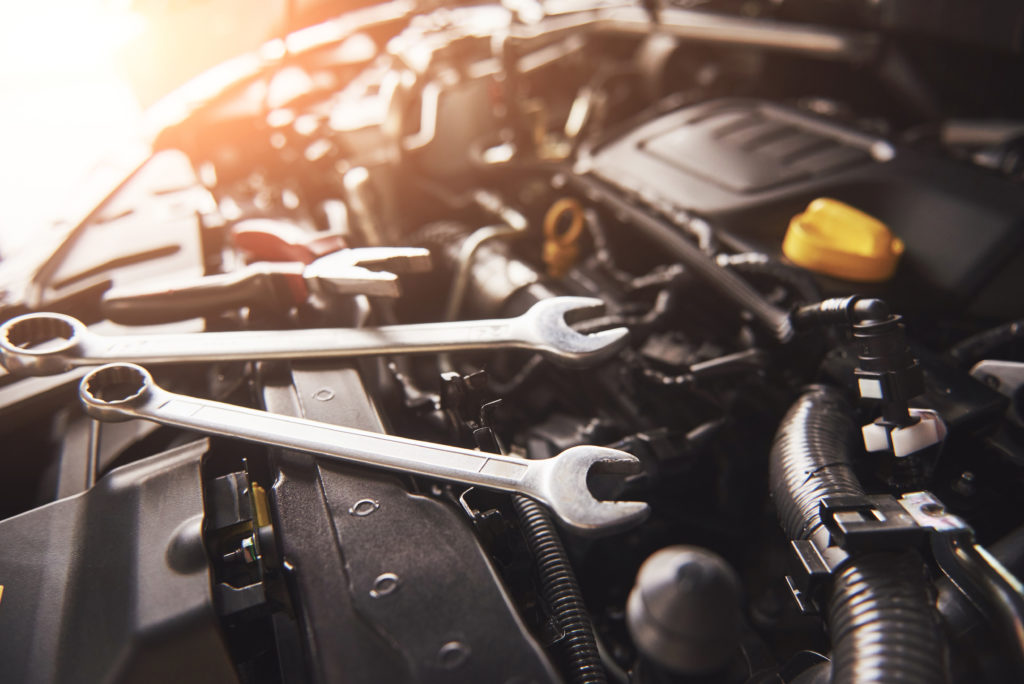Are you facing issues with your car’s engine performance and contemplating whether to rebuild it on your own or take it to a professional? An engine rebuild is a complex process that involves disassembling, cleaning, replacing damaged parts, and reassembling the engine. In this post, we will help you understand the basics of an engine rebuild and the pros and cons of both DIY and Professional approaches. While a DIY engine rebuild can save you some money, it requires a certain level of expertise, experience, and tools. On the other hand, a professional engine rebuild guarantees quality workmanship but comes at a higher cost. Read on as we guide you through making an informed decision that suits your needs and budget.

Understanding the Basics of Engine Rebuild
Engine rebuilds restore engines and extend their lifespan. Disassembly, inspection, cleaning, and component replacement ensure optimal functioning. Benefits include improved performance, fuel efficiency, and reliability. For a thorough overhaul, specialized tools and expertise are necessary. Professionals accurately diagnose engine problems and implement solutions. Understanding engine components is crucial when deciding between DIY and professional rebuilds. A DIY approach requires solid knowledge of engine parts and preparation for challenges. In summary, engine rebuilds restore engines and improve their performance. Professionals have the expertise, while a DIY approach requires a solid understanding of engine components.
What Does Rebuilding an Engine Entail?
Rebuilding an engine involves replacing worn or damaged components like pistons, crankshafts, and cylinder heads. The engine block, crankshaft, and cylinder head are inspected, cleaned, and machined if needed. Gaskets, seals, and bearings are replaced for proper compression, lubrication, and sealing. Adjustments may be made to valve clearance, timing, and ignition. If all components are in good shape, the engine can be put back together and back on the road. Specialized knowledge and skills are required for optimal results.
The DIY Approach to Engine Rebuild
Taking on a DIY engine rebuild can be a cost-effective alternative to professional auto repair services. By opting for the do-it-yourself route, you have the freedom to customize your engine and choose the specific parts that suit your needs. Not only does this provide a unique touch to your vehicle, but it also allows you to gain valuable hands-on experience in engine mechanics and car repairs.
For car enthusiasts and beginner mechanics, a DIY engine rebuild can be an incredibly rewarding project. It offers an opportunity to dive deep into the inner workings of your vehicle, understand its complexities, and develop invaluable skills along the way. Online resources, such as YouTube tutorials, can serve as excellent guides, providing step-by-step instructions and support throughout the rebuilding process.
However, it’s important to note that a successful DIY engine rebuild requires a good understanding of engine mechanics, patience, and a significant time commitment. You’ll need to familiarize yourself with concepts like engine compression, bores, valves, and other components. Additionally, having access to the necessary tools and equipment is crucial for a smooth and efficient rebuild.
In conclusion, the DIY approach to engine rebuilds can offer a cost-effective and rewarding experience for those willing to put in the effort. Just make sure you have the knowledge, skills, and resources necessary to tackle the project confidently. With careful planning and attention to detail, you can achieve satisfying results and have a sense of pride in your automotive accomplishment.
Advantages and Challenges of a DIY Engine Rebuild
There are benefits to a DIY engine rebuild, such as cost savings and the ability to choose engine components. However, DIY engine rebuilds can be challenging and require significant time and expertise. It’s crucial to assess your skill level and available resources before deciding if a DIY engine rebuild is right for you.
Necessary Skills for a DIY Engine Rebuild
To successfully tackle a DIY engine rebuild, you’ll need to have some basic automotive knowledge, particularly about engine operation. This understanding will be essential as you venture into the disassembly, cleaning, measuring, and reassembly stages of the process. Having a grasp on engine specifications, compression, bores, valve clearance, and timing is crucial too.
But it’s not just about technical skills. Patience, attention to detail, and problem-solving abilities play a significant role in troubleshooting during the engine rebuild. You may encounter unexpected challenges along the way, and having the patience to work through them will be invaluable. If you’re new to DIY engine rebuilds, consider taking courses or attending workshops to enhance your skills. Seeking guidance from experienced DIYers can provide practical insights and valuable tips to make your rebuild a success. Remember, practice makes perfect, so don’t be afraid to start small and gradually tackle more complex projects.
The Professional Approach to Engine Rebuild
When it comes to engine rebuilds, taking the professional approach can offer several advantages. Professional engine rebuilders possess the expertise, experience, and professional services needed to carry out a comprehensive engine overhaul. Certified mechanics ensure that the rebuild is done correctly, adhering to industry standards and specifications. Additionally, professional engine rebuilders utilize specialized auto repair tools, equipment, and diagnostics, ensuring accurate repairs.
One significant benefit of choosing a professional engine rebuilder is the peace of mind provided by warranties. These warranties offer protection against potential issues that may arise after the rebuild. Moreover, opting for a professional rebuild can save you time. Certified mechanics are equipped to efficiently diagnose, repair, and rebuild engines, reducing the overall time taken for the used engine rebuild process.
In conclusion, the professional approach to engine rebuilds provides the expertise, precision, and assurance necessary for a successful overhaul. By entrusting your engine rebuild to professionals, you can have confidence in the quality of the work and enjoy the peace of mind that comes with their warranties. Additionally, you can save valuable time as certified mechanics efficiently carry out the rebuild process. So, if you’re considering an engine rebuild, the professional route is certainly worth considering.
How Do I Decide Between DIY and Professional Engine Rebuild?
When deciding between a DIY and professional engine rebuild, consider your skill level, available time, and resources. DIY rebuilds are suitable for car enthusiasts and beginner mechanics with the necessary skills and tools. Professional rebuilders ensure high-quality results for those lacking mechanical expertise, and may even offer low mileage engines as an option. Evaluate complexity, customization, and warranties before deciding. Consult professionals or experienced DIYers for guidance.
Conclusion
Ultimately, whether you choose DIY or professional engine rebuild depends on your skills, experience, and available resources. If you have the necessary knowledge, tools, and time to dedicate to the project, then a DIY approach can be a rewarding and cost-effective option. However, if you lack the expertise or are dealing with a complex engine issue, it’s best to seek professional help to ensure the job is done correctly and efficiently. Remember, the safety and performance of your vehicle should be your top priority. Consider your capabilities, budget, and desired outcome when making this decision.


